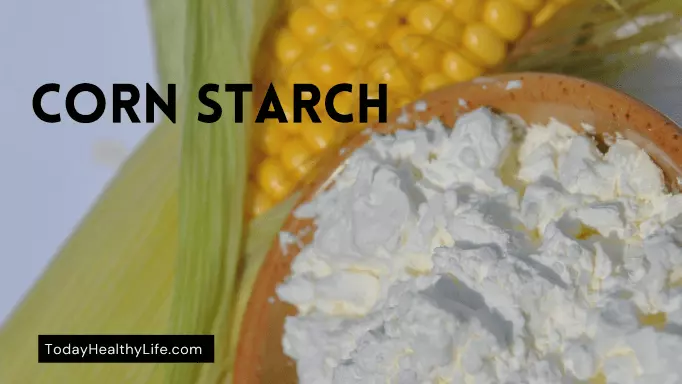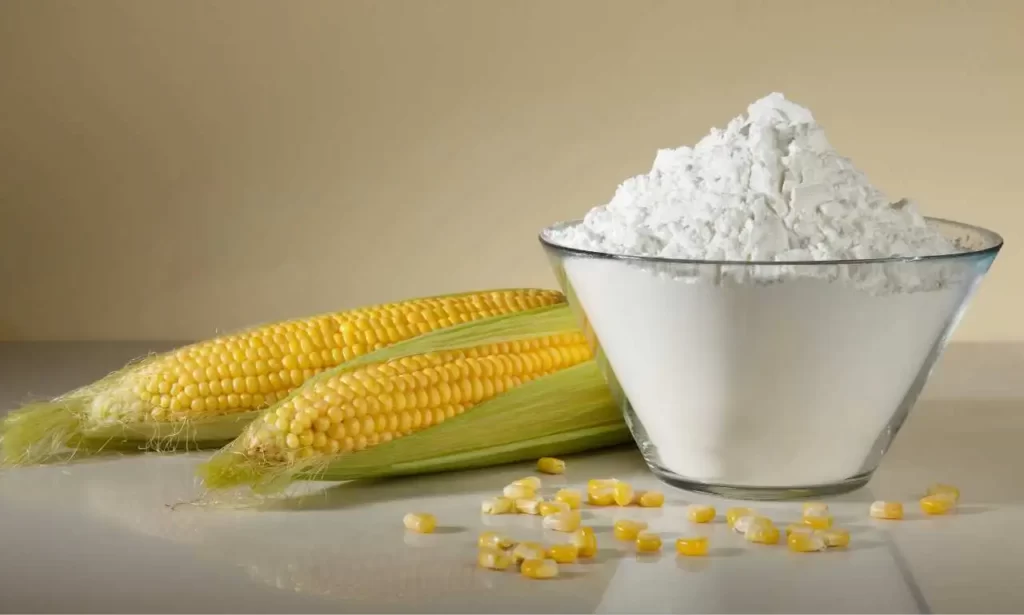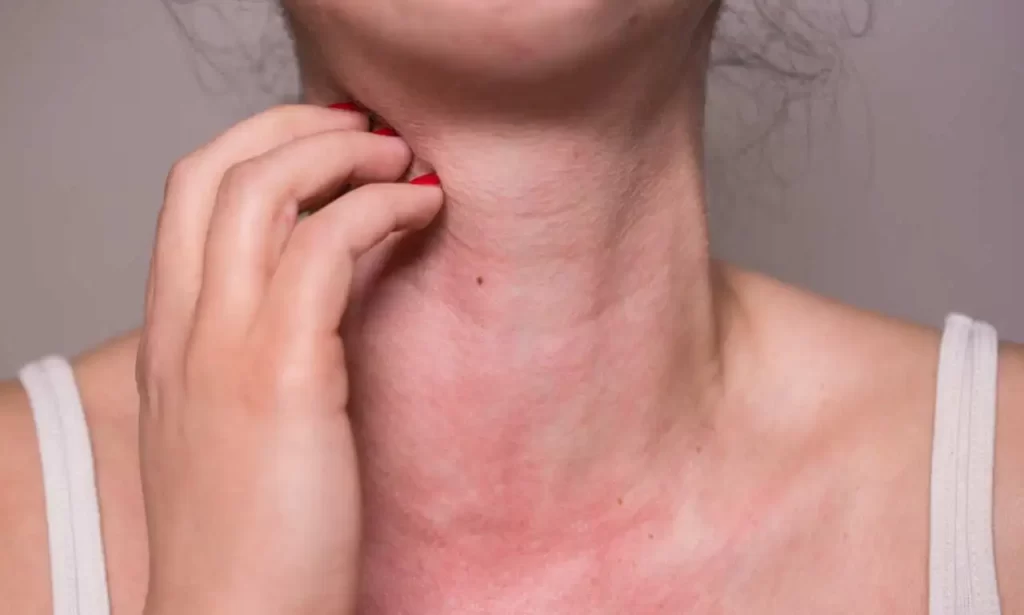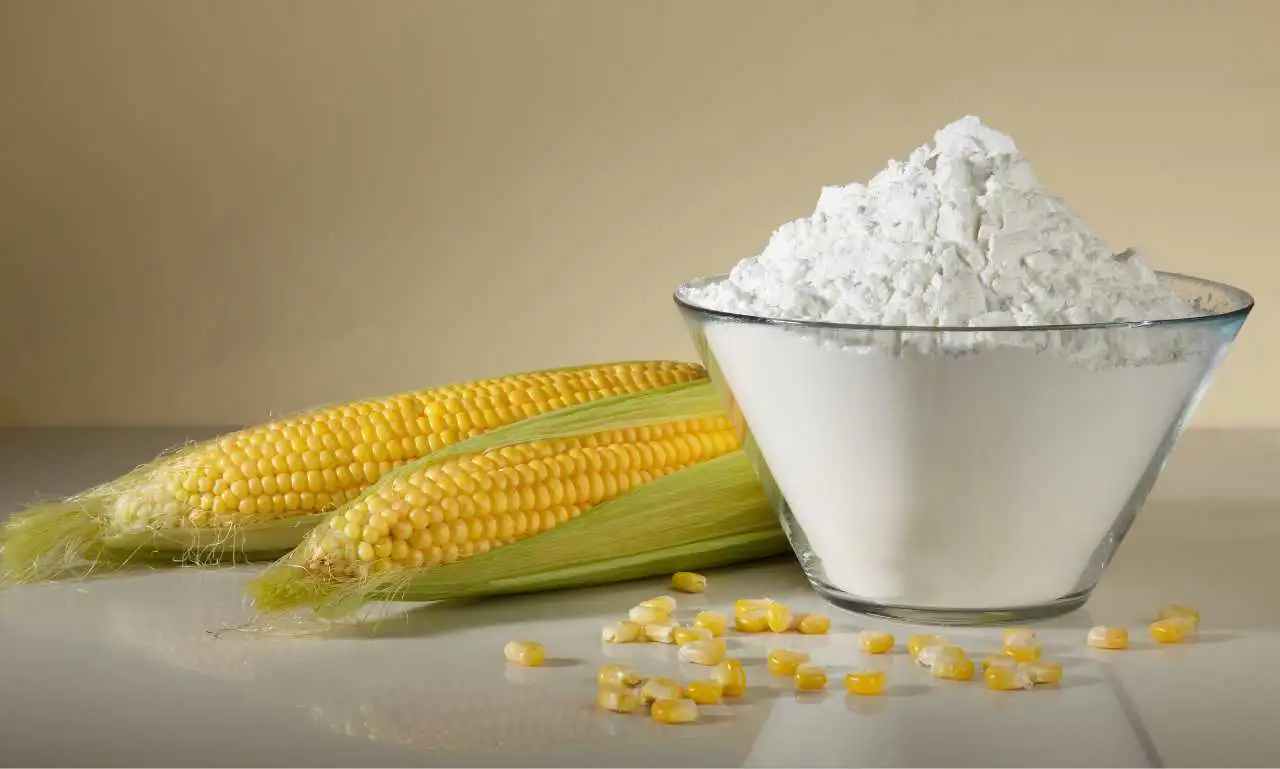The human diet is incredibly diverse, encompassing a wide array of tastes, preferences, and even some peculiar eating habits.
Among these habits, one particularly intriguing phenomenon is the consumption of corn starch by some females.
This behavior has puzzled many, prompting questions about its underlying causes, potential health implications, and cultural significance.
In this article, we will delve into the topic, exploring the possible reasons why some females engage in this unique eating habit.
Table of Contents
What is Corn Starch?

Corn starch, also known as corn flour, is a fine, powdery substance derived from corn kernels. It is a common ingredient used in cooking and baking as a thickening agent and to improve texture.
Corn starch is extracted from the endosperm of the corn kernel, which is composed mainly of carbohydrates. It has a neutral taste and is often used to thicken sauces, soups, and gravies.
It is gluten-free, making it a suitable alternative for individuals with gluten sensitivities or celiac disease.
Corn starch is also used in some non-food applications, such as in the production of paper, adhesives, and pharmaceuticals.
Also Read:
- Why do people eat cornstarch? Is it bad for you? & more.
- What Does Eating Cornstarch Do To Your Teeth?
- What Happens If You Eat Cornstarch Everyday? How To Stop It?
Why Do Females Eat Corn Starch?

There are four main reasons why females might eat cornstarch. Let’s explore the possible reasons one by one.
1. Taste
Some individuals have a preference for the taste of cornstarch, finding its subtly sweet and mild flavor appealing.
This preference can be subjective, and some may even incorporate cornstarch into recipes to enhance the taste of various dishes.
Due to its neutral flavor profile, it can be a versatile ingredient in both sweet and savory preparations, making it a popular choice for culinary experimentation.
2. Texture
The smooth, powdery texture of cornstarch is a unique aspect that appeals to some individuals. When consumed, it provides a satisfying sensation, often appreciated for its fine consistency.
Some people find that ingesting cornstarch can have a soothing effect on their throats or stomachs, leading them to choose it as a comforting option.
Additionally, the way cornstarch feels on the tongue can be enjoyable for those who have a preference for certain textures in their food.
3. Health Benefits
While cornstarch is not typically considered a primary source of nutrients, it does contain important elements like iron, magnesium, and phosphorus.
These nutrients play crucial roles in maintaining good health. Iron is essential for proper oxygen transportation in the body, magnesium supports muscle and nerve function, and phosphorus contributes to bone health.
Incorporating cornstarch into one’s diet can be a way to supplement these nutrients, although it’s important to note that a balanced diet with a variety of foods is recommended for optimal nutrition.
4. Pica
In certain cases, individuals, particularly females, may consume cornstarch as a manifestation of pica, an eating disorder characterized by the persistent craving and consumption of non-food substances.
Cornstarch, in this context, is considered a non-food item. The underlying causes of pica can be complex and may include nutritional deficiencies, psychological factors, or specific medical conditions.
Seeking professional help from a healthcare provider or mental health specialist is crucial for proper assessment, diagnosis, and appropriate treatment options tailored to the individual’s specific situation.
If you have concerns about your consumption of cornstarch, it is imperative to consult with a healthcare professional. They can conduct a thorough evaluation to determine if there is an underlying medical condition contributing to your cravings and provide guidance on the best course of action for your health and well-being.
Read: Why is Plain Yogurt Good for Females?
Benefits of Corn Starch
Corn starch offers several benefits, both in culinary applications and beyond. Here are some notable benefits of corn starch:
- Thickening Agent: One of the primary uses of corn starch is as a thickening agent in cooking and baking. It has the ability to absorb and hold water, creating a thickened consistency in sauces, gravies, soups, and pie fillings. This property makes it a valuable ingredient in achieving desired textures in various dishes.
- Gluten-Free Alternative: Corn starch is naturally gluten-free, making it a suitable alternative for individuals with gluten sensitivities or celiac disease. It can be used as a substitute for wheat-based thickeners like flour in recipes, providing the desired texture without the presence of gluten.
- Versatility in Cooking: Corn starch is a versatile ingredient that can be used in a wide range of recipes. It is commonly used to coat meat before frying, creating a crispy outer layer. It can also be used in baking to provide tenderness and moisture to cakes, cookies, and other baked goods.
- Allergen-Free: Corn starch is not a common allergen, and most people can tolerate it well. It is considered safe for consumption by individuals with common food allergies like wheat, soy, and dairy.
- Shelf-Stable: Corn starch has a long shelf life when stored properly in a cool, dry place. It does not require refrigeration and can be kept for an extended period, making it a convenient pantry staple.
- Non-Toxic: Corn starch is a safe and non-toxic substance when consumed in appropriate amounts. It is not harmful to ingest and is commonly used in a variety of food and non-food applications.
- Non-GMO Options: With the growing demand for non-genetically modified organism (non-GMO) products, corn starch manufacturers often offer non-GMO options for those seeking to avoid genetically modified ingredients.
It is important to note that while corn starch offers certain benefits, it is still important to consume it in moderation as part of a balanced diet.
As with any ingredient, excessive consumption may lead to potential adverse effects, so it is best to use it judiciously.
Read: Does Plain Yogurt Clean the Womb? & Why?
Nutrition of Corn Starch
Here is a nutrition table for corn starch per 100 grams:
| Nutrient | Amount |
|---|---|
| Calories | 381 kcal |
| Carbohydrates | 91.27 g |
| Protein | 0.26 g |
| Fat | 0.09 g |
| Fiber | 0.9 g |
| Sugar | 0.86 g |
| Calcium | 2 mg |
| Iron | 0.47 mg |
| Magnesium | 9 mg |
| Phosphorus | 4 mg |
| Potassium | 3 mg |
| Sodium | 2 mg |
| Zinc | 0.11 mg |
As you can see, corn starch is a low-calorie food that’s packed with fiber and vitamins. Additionally, it’s a good source of carbohydrates, which are essential for energy.
Please note that the nutritional values may vary slightly depending on the brand and specific corn starch product.
Is Corn Starch Bad for Females?
No, corn starch is not bad for females.
Some people believe that corn starch can help with weight loss, but there is no scientific evidence to support this claim.
Corn starch is a complex carbohydrate that is slowly broken down and absorbed by the body, which makes it a good source of energy. However, because it is high in calories, corn starch should be consumed in moderation.
If you are trying to lose weight, it is best to focus on eating more whole grains, fruits, and vegetables, and less processed foods like corn starch.
Is Corn Starch Good for Males?
There is some debate as to whether corn starch is good for males. Some say that it can help with digestive issues, while others claim that it can lead to problems like obesity. However, there is no definitive answer.
Corn starch is typically used as a thickening agent in food. It is also sometimes used as a binding agent or emulsifier. It is made from the endosperm of the corn kernel and is a complex carbohydrate.
There are no known negative side effects of consuming corn starch. However, as with any food, it is always best to consult with a doctor or nutritionist before making any major changes to your diet.
Possible Negative Side Effects of Cornstarch
While corn starch is generally safe to eat, there are a few potential side effects that you should be aware of.
For example, if you eat too much corn starch, it can cause gas and bloating. Additionally, some people are allergic to corn, so eating corn starch may cause an allergic reaction in some people.
If you experience any side effects after eating corn starch, it is important to speak with your doctor.
How to Stop Eating Cornstarch?
Here are some tips for reducing your cornstarch intake:
- Avoid keeping cornstarch in your home.
- If you do have cornstarch in your home, store it in a high cupboard or pantry where it is out of sight and out of reach.
- Find other healthy snacks to eat instead of cornstarch. Fruits, vegetables, and nuts are all good choices.
- If you find yourself craving cornstarch, try to identify the triggers that are causing your cravings. Once you know what is causing your cravings, you can start to develop strategies for coping with them.
If you are struggling to reduce your cornstarch intake on your own, talk to your doctor or a registered dietitian. They can help you to develop a plan that is right for you.
Can Eating Cornstarch Kill You?
There is a lot of misinformation out there about cornstarch and its effects on the human body.
Some people believe that eating cornstarch can lead to death, while others claim that it is a healthy and nutritious food. So, what is the truth?
Cornstarch is a type of carbohydrate that is made from the endosperm of the corn kernel. It is a fine, white powder that is often used as a thickening agent in food.
Cornstarch is made up of mostly glucose molecules, which are simple sugars.
When ingested, cornstarch is broken down into glucose and absorbed into the bloodstream.
Blood sugar levels rise after eating foods containing carbohydrates like cornstarch. In response to the rise in blood sugar, the pancreas releases insulin, a hormone that helps cells absorb glucose from the bloodstream.
Eating large amounts of cornstarch can cause blood sugar levels to spike and then crash, leading to fatigue, irritability, and hunger. In extreme cases, this can lead to coma or death.
However, there is no evidence to suggest that eating small amounts of cornstarch is harmful. In fact, cornstarch may even have some health benefits.
Some studies have shown that cornstarch can help reduce cholesterol levels and improve blood sugar control in people with diabetes.
Cornstarch is also a good source of fiber, which is important for digestive health.
What Does Eating Cornstarch Do to Your Body?
Eating cornstarch in small amounts is generally considered safe for most people. It’s a common ingredient in many foods and is often used as a thickening agent in recipes.
However, consuming large quantities of cornstarch can potentially lead to some health issues:
1. Digestive Issues:
Cornstarch is primarily composed of carbohydrates, and consuming excessive amounts may overload your digestive system with starches. This can lead to bloating, gas, and possibly diarrhea.
2. Nutritional Imbalance:
Cornstarch is low in essential nutrients like vitamins, minerals, and fiber. Relying on it as a significant part of your diet without consuming other nutritious foods can lead to a nutritional imbalance.
3. Blood Sugar Spikes:

Cornstarch is a high-glycemic carbohydrate, which means it can cause rapid spikes in blood sugar levels when consumed in large quantities. This can be a concern for individuals with diabetes or those at risk of developing it.
4. Weight Gain:

Excessive consumption of cornstarch, like any other high-calorie, low-nutrient food, can contribute to weight gain if it leads to an overall caloric excess.
5. Allergies and Sensitivities:

Some individuals may be allergic to corn or have sensitivities to corn-based products like cornstarch. If you have a known allergy or sensitivity, it’s important to avoid cornstarch.
6. Potential for Aspiration:
Inhaling fine particles of cornstarch powder can be a risk if it’s consumed in large quantities, especially by young children or elderly individuals with compromised swallowing abilities.
It’s worth noting that consuming moderate amounts of cornstarch as part of a balanced diet is generally considered safe for most people. However, as I told you before, if you have specific concerns about cornstarch or any other food ingredient, it’s always best to consult with a healthcare professional or registered dietitian. They can provide personalized advice based on your individual health circumstances.
Does Eating Cornstarch Cause Yeast Infections?
There is no definitive answer to this question, as there is no scientific evidence to suggest that cornstarch directly causes yeast infections.
However, some experts believe that eating foods containing cornstarch may increase the risk of developing a yeast infection, as the starch can feed the growth of yeast cells.
Additionally, cornstarch can create a warm, moist environment that is ideal for yeast growth.
For these reasons, it is important to be aware of the potential risks associated with eating cornstarch and to take steps to prevent a yeast infection if you are susceptible.
If you are concerned about the possibility of developing a yeast infection from eating cornstarch, you may want to avoid consuming it or limit your intake.
Additionally, be sure to practice good hygiene and always clean the area around your vagina well to help prevent a yeast infection.
Conclusion
So, why do females eat cornstarch? Females may consume cornstarch for various reasons. It can be used as a thickening agent in food products and contribute to enhancing their texture.
Additionally, some females may have specific dietary preferences or cravings for certain tastes or textures, which may include the unique consistency of corn starch.
However, it is important to note that the consumption of non-food substances, including corn starch, may indicate an underlying nutritional deficiency or a medical condition and should be addressed by a healthcare professional.
Maintaining a balanced and nutritious diet based on whole foods is crucial for overall health and well-being.
If you are concerned about your intake of cornstarch, talk to your doctor or a registered dietitian for advice.
Some related FAQs:
There is no definitive answer to why girls (or anyone) might eat corn starch, as there can be many reasons why someone would make this choice.
Some people might view corn starch as a healthier alternative to other kinds of starch, such as potato starch. Others might find that corn starch is more filling than other starches, making it a good choice for those looking to control their weight.
Additionally, some people simply prefer the taste or texture of corn starch over other options. Whatever the reason, there is no doubt that corn starch can be a nutritious and satisfying part of any diet.
There is no definitive answer to this question. Some people may experience digestive issues if they eat cornstarch too often, while others may not have any problems at all.
Some people may find that they feel fuller after eating cornstarch, and it can be a helpful way to control weight. However, there is no scientific evidence to support these claims.
If you are concerned about eating cornstarch every day, speak to a doctor or registered dietitian for advice.
Eating cornstarch in small amounts is generally safe, but eating it in large amounts or on a regular basis can be harmful to your teeth.
Cornstarch is a starchy food, and starchy foods can stick to your teeth and cause plaque buildup. Plaque is a sticky film of bacteria that can cause tooth decay and gum disease.
If you eat a lot of cornstarch, you may be more likely to develop these problems.
In addition, cornstarch is not a nutrient-rich food. It is low in vitamins and minerals, and it does not contain any fiber.
Eating a lot of cornstarch can contribute to weight gain and other health problems.
If you do eat cornstarch, it is important to brush your teeth and floss regularly to remove any plaque that may have built up.
You should also avoid eating cornstarch right before bed, as this gives plaque more time to build up on your teeth.

